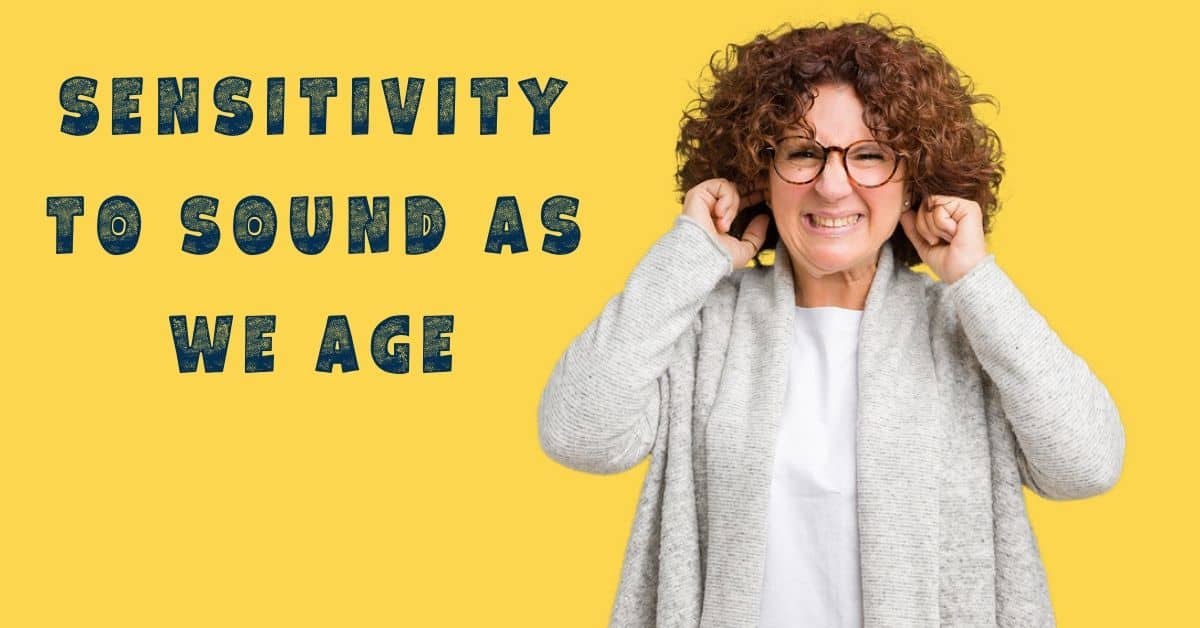- Understanding the Impact of Noise Pollution on Hearing Health - June 4, 2025
- Can Swimming With Hearing Aids Be Safe? - May 7, 2025
- Why Hydration Matters for Hearing Health - April 9, 2025
Time waits for no one and as time marches on, things naturally change. You may notice you are moving a little slower, taking a little more time to get things done, requiring a little more time to recharge. Your senses change, too. You may need glasses and you may need hearing aids. For many, sounds change as you age. You aren’t imagining things if you think some sounds seem louder than others and, more annoying than before.
Some noise issues, like hearing loss, can and should be corrected with hearing aids. The first step to keeping your hearing clarity is making an appointment for a hearing evaluation at Coweta Hearing & Balance Clinic. If you are also experiencing tinnitus, or ringing in your ears, we can help with that, too!
Age and Sound Changes
Sound sensitivity changes as we get older is common in individuals with hearing loss, but it can also occur in individuals with normal hearing. People may become so sensitive to sounds they can barely stand what others may consider a “normal” level of sound. Hearing aids are good at alleviating much of the sound sensitivity issue because their internal processing is set up to not overload the ear with sound amplification. The newest models can adjust almost instantaneously to a loud noise like a gunshot or fireworks.
Have you been involved in a conversation with a senior citizen and they ask you to speak up? And, a short time later they are admonishing you that you don’t have to shout? Or, are you the individual that is asking people to speak a little louder and then finding out they are speaking at a level you don’t find comfortable? This is loudness discomfort.
Auditory Cortex Issues
As we get age, the hair cells and nerve fibers in our inner ears deteriorate. Once they are damaged or destroyed, they don’t regenerate. Studies indicate a reduced blood flow, which is a natural part of aging, causes changes in our ears. Damage could also be the result of prolonged exposure to loud noises or a combination of factors. As a result of the damage, we start noticing difficulty with sound processing and with sound ranges. The high range, which would include children’s and some women’s voices, declines firsts.
An article in the Journal of Neuroscience reported a study that examined the auditory cortex of individuals in their 20s and their 60s and found they were different. This might explain, they said, why some individuals develop an oversensitivity to sounds as they age.
Noise Filtering Impacted
As you get older you have issues distinguishing sounds you are trying to listen to from background noise. This is a sound processing and filtering issue. Scientists monitored the brains of adults between the ages of 18 and 31 and also adults between 60 and 70. When each group was given a listening task, the younger group was able to zero in on and concentrate on the specific noise while the older group could not. The younger adults were hardly aware of what the older adults found was distracting background noise and they were able to pinpoint specific, distinctive sounds.
Meanwhile, older adults reported problems understanding a conversation with noise around them. Part of the problem is hearing loss, but newer research also suggests the brain’s ability to filter out background noise changes as we age. One explanation, said researchers, is that the brain synchronizes with the specific rhythms of speech. When monitors were attached to study participants to chart brain and neural signals, the signals in the older adults’ brains synchronized to the background noise and not to a specific sound – like a voice – that they were trying to hear.
Researchers have two theories as to what caused the issue. One was that hearing loss leads to a decline in the brain’s ability to filter out noise and target a single sound. The other is that the brain’s sound processing changes. Sounds that seem the distressing to seniors would be high-pitched sounds like smoke and carbon monoxide alarms. Some seniors also reported they had sensitivity are the clanging of silverware or pots and pans, clapping and children screaming.
Coweta Hearing & Balance Clinic
Have you been struggling with your hearing abilities? Our team at Coweta Hearing & Balance Clinic is here to help. We offer comprehensive hearing health services, and we can help you find a hearing solution to meet your needs. Call for a test today!

